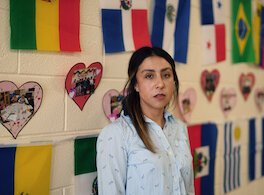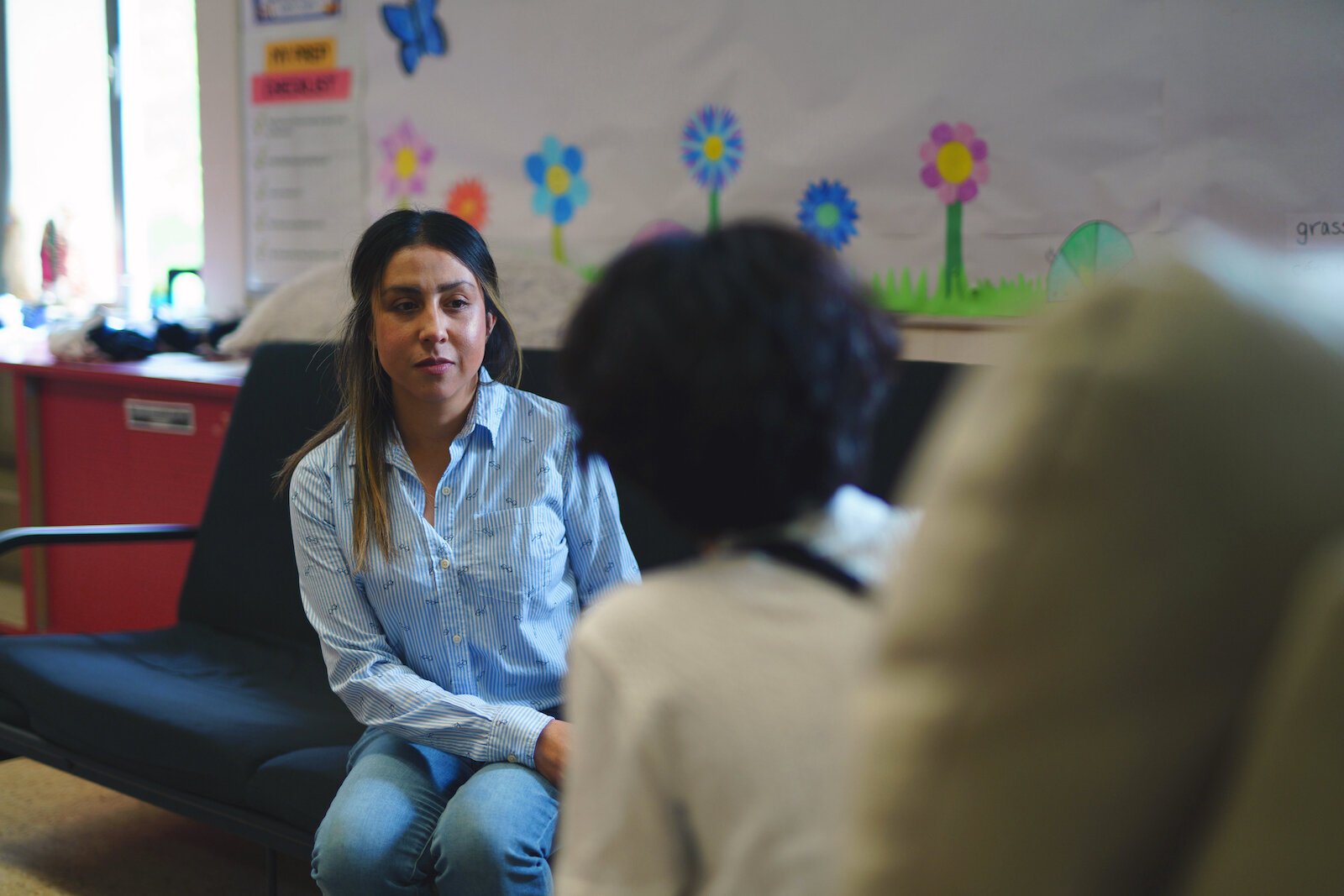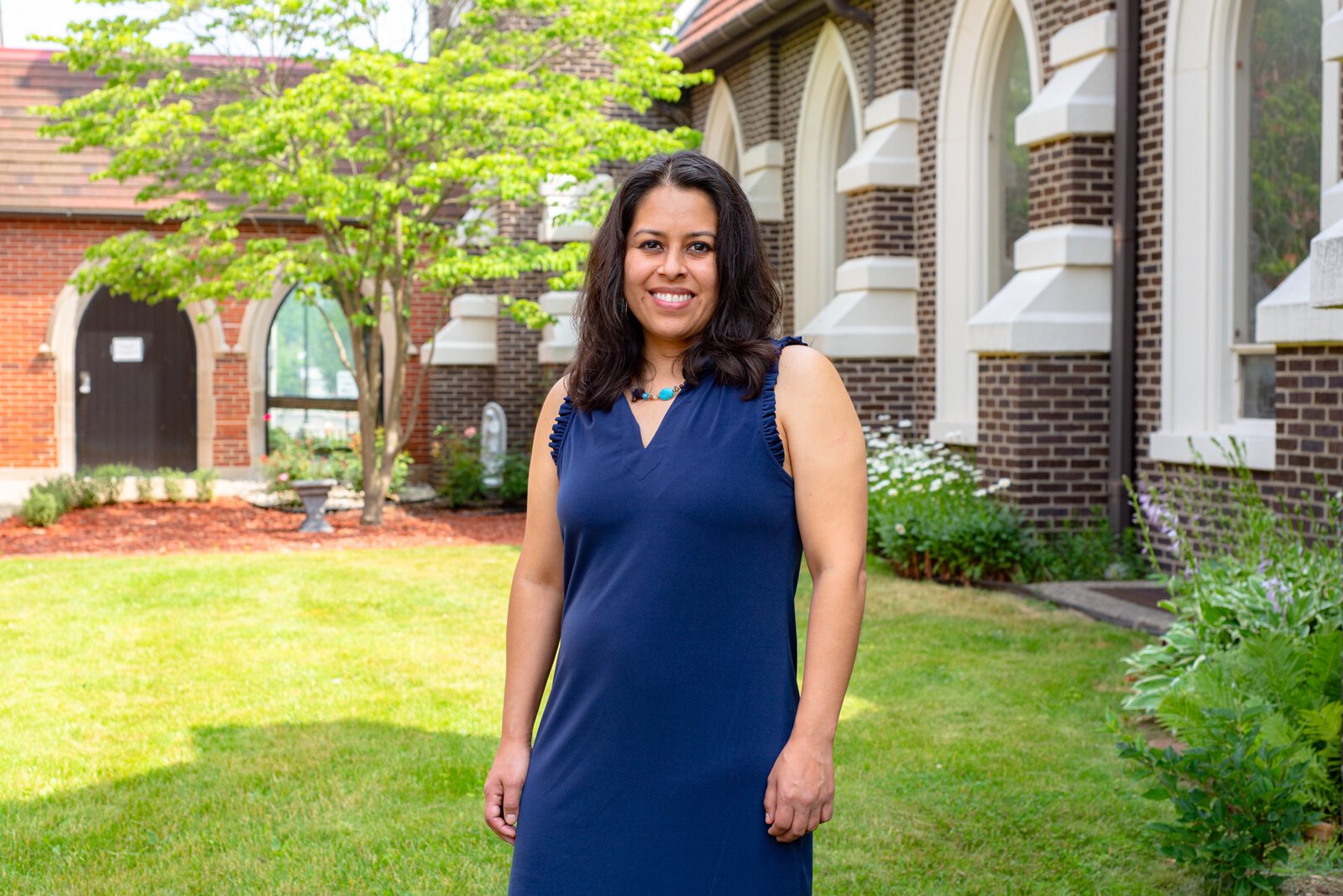Having a therapist who understands your family’s culture, emotional attachments, and unique ways of dealing with situations is important.
This article from New/Nueva Opinion is part of Mental Health Workforce Crisis: Effective approaches to improving the pipeline, a solutions-focused reporting series of Southwest Michigan Journalism Collaborative. The collaborative, a group of 12 regional organizations dedicated to strengthening local journalism and reporting on successful responses to social problems, launched its Mental Wellness Project in 2022 to cover mental health issues in southwest Michigan.
Para leer este articulo en español dale click aqui.
Not long after Nancy Rubio’s family moved to Kalamazoo, tragedy struck.
Her husband was killed in a car crash. Her young son Diego was struggling to cope, so his elementary school connected the family to El Concilio, a local organization, for counseling in his primary language: Spanish.
“When this happened, we were practically new here,” Rubio says through a translator. “We didn’t really know where to go or where to ask for that help. El Concilio really did know what to do.”

El Concilio, a Kalamazoo-based nonprofit that supports the Spanish-speaking community provided Diego with Counseling Psychologist Maria Faison. The 42-year-old is one of few Latina, Spanish- and English-speaking therapists in the area who offers culturally and linguistically appropriate care for the Spanish-speaking population here.
Her caseload has been full as demand for culturally responsive care has increased and marginalized populations struggle to find mental health providers equipped to meet their needs.
Plenty of research has established the importance of mental health services, especially around how mental distress can dramatically impact physical health and quality of life. But if people don’t have culturally responsive care options, they may not seek care and then they can’t live the lives they want to live, says Randl Dent, Research Scientist for the Fitzhugh Mullan Institute for Health Workforce Equity at George Washington University
“And if they do seek care, it might do more harm than good,” Dent says. “When people seek health care, we want them to have good experiences so if they have problems in the future, they have someone they feel comfortable going to.”
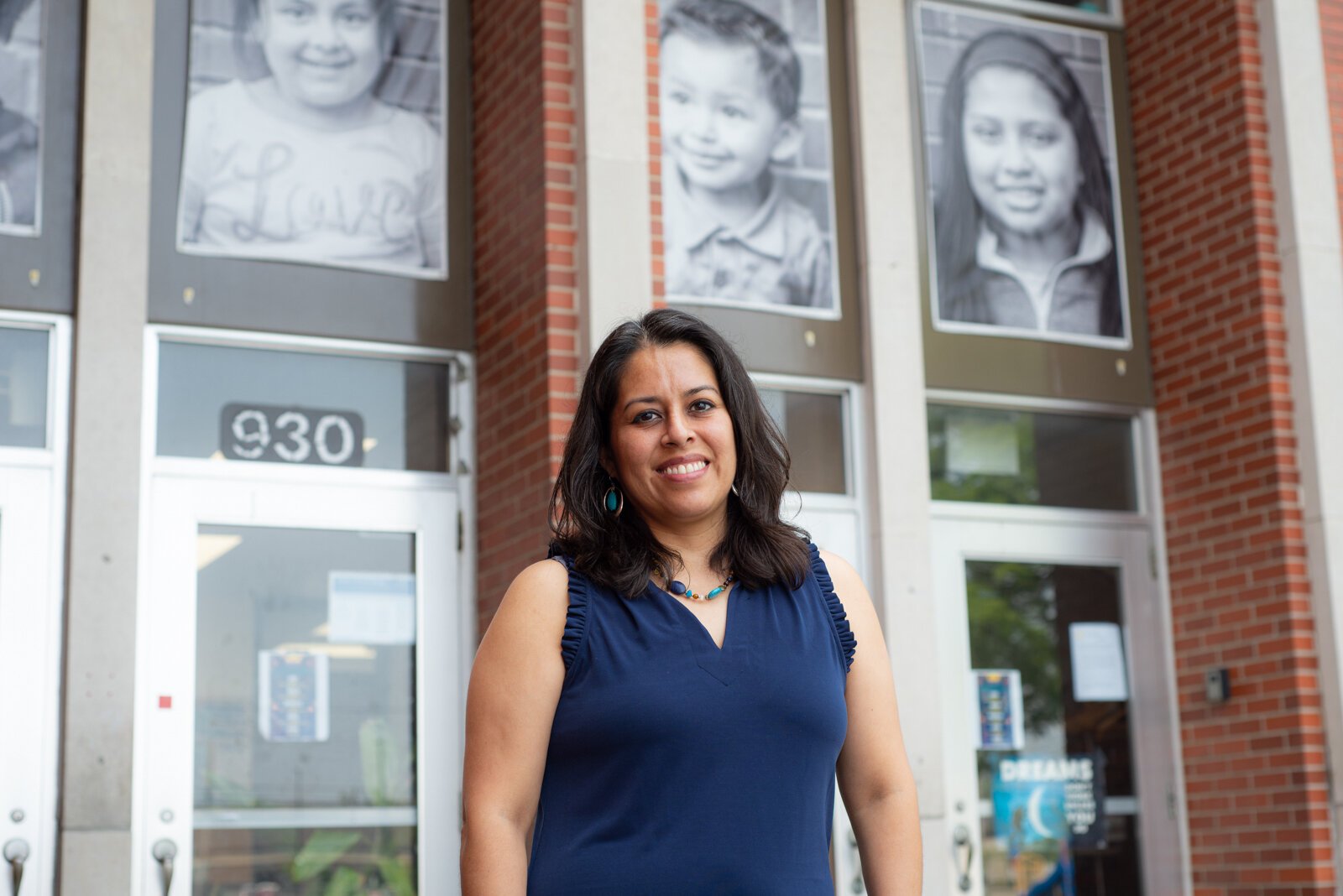
A Black woman, Dent pointed to her relationship with her Black woman therapist as an example of the importance of culturally responsive care.
“There are some things I just don’t have to explain,” Dent says. “I don’t feel like I’m teaching when I’m actually receiving care.”
Finding Someone Who Gets It
Diego’s work with Faison is his first time in therapy, and having a therapist who understands his family’s culture, emotional attachments and unique ways of dealing with situations is important to them, his mother says.
“The fact that … the therapist that my son has is of Latino origin, I think that generates that connection, that sense of trust that she understands what the situation is like at home as well — how we react or how we are going to react as a family,” Rubio says. “I think it is that feeling of cultural empathy.”
Marginalized populations – those who generally lack the same access or opportunities due to race, gender identity, sexual orientation, or language, among other factors – are more impacted by the mental health care workforce shortage in that they are less likely to seek out care or find someone who meets their needs. In many cases, that exclusion means people are not receiving culturally appropriate mental health care. Culturally-congruent care happens when the provider and client levels fit well together and clients have their needs met in the context of relevant cultural domains such as family, nutrition, spirituality, values and communication.
According to data curated by the National Institute for Health Care Management, 81% of psychologists are White, 82%of mental health counselors are White, 10% of psychiatrists are Black, Hispanic, or Native American and 65% of social workers are white. Meanwhile, census data shows that only 60% of the United States population are non-Hispanic Whites.
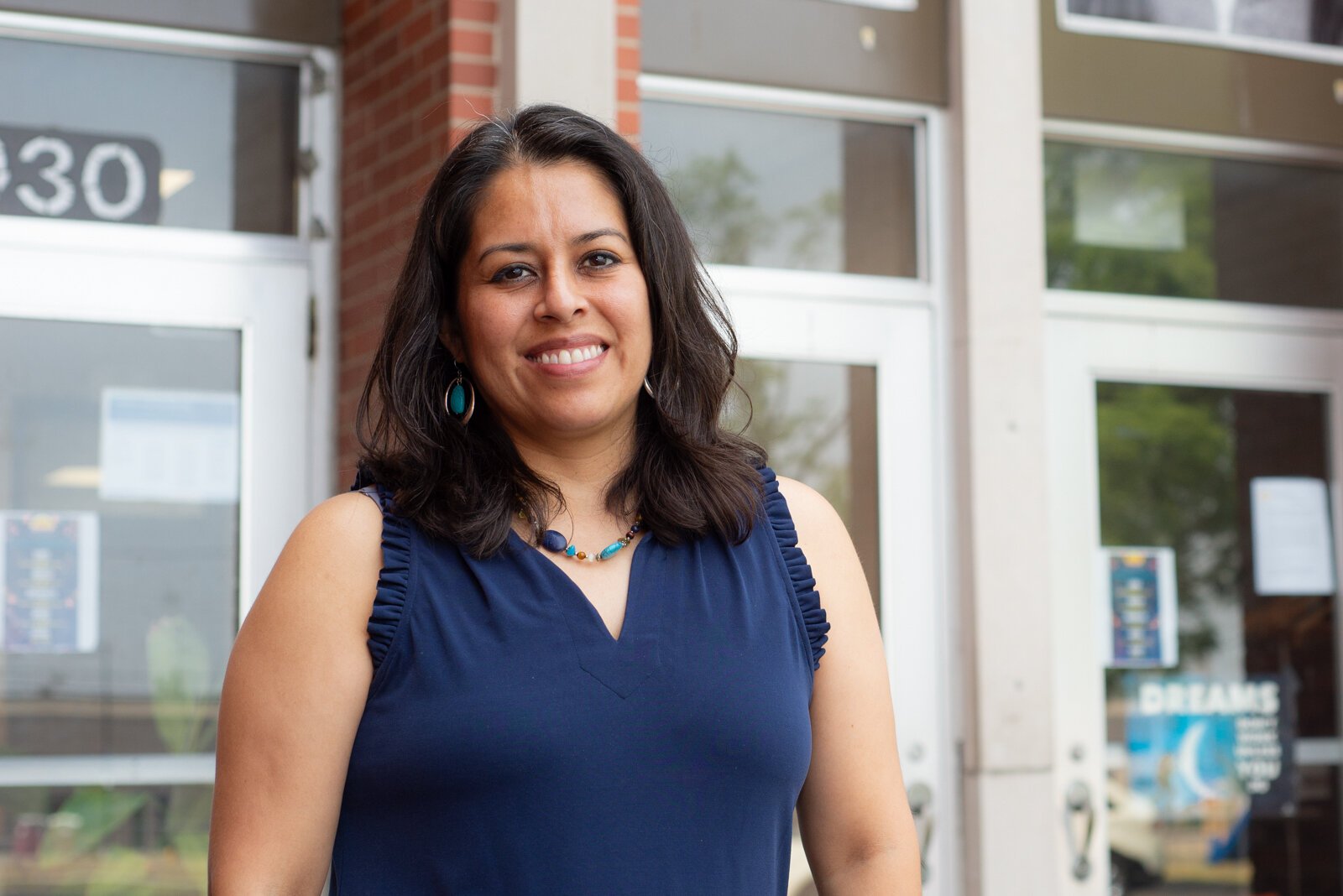
Providing culturally congruent care is more than a competency-based model that allows people to believe they’ve checked certain boxes to work with marginalized populations, says Kenlana Ferguson, a Black woman who has spent 20 years working as a licensed psychologist, mostly in Kalamazoo.
“For me, that’s not fully understanding humanity,” she says.
Instead, as the 45-year-old engages clinicians in training, she encourages them to think about the entire ecosystem of the individual they’re engaging and become healers.
“When I work with BIPOC (Black, Indigenous, People of Color) individuals, I’m working with the whole ecosystem of that individual,” she says. “That intervention may be in my office and in the mind and emotions and relationships of that person, but also considering systemic issues, the intervention may be within the family, school, and community.
“So you have to be able to conceptualize all of those, even if it’s outside of your scope. You can help that person get connected to resources to address the actual problem and not just address the reactions to the problem or the symptomology.”
While many agree on the need for cultural congruency in providing mental health services, a big challenge is finding the staff to provide it.
That’s an issue for Integrated Services of Kalamazoo, the county’s community mental health agency, which provides mental health services for Medicaid patients and is available to other residents regardless of financial status. ISK CEO Jeff Patton says in a statement that his agency is among the many that have had to contend with the gap in recruiting mental health professionals of color.
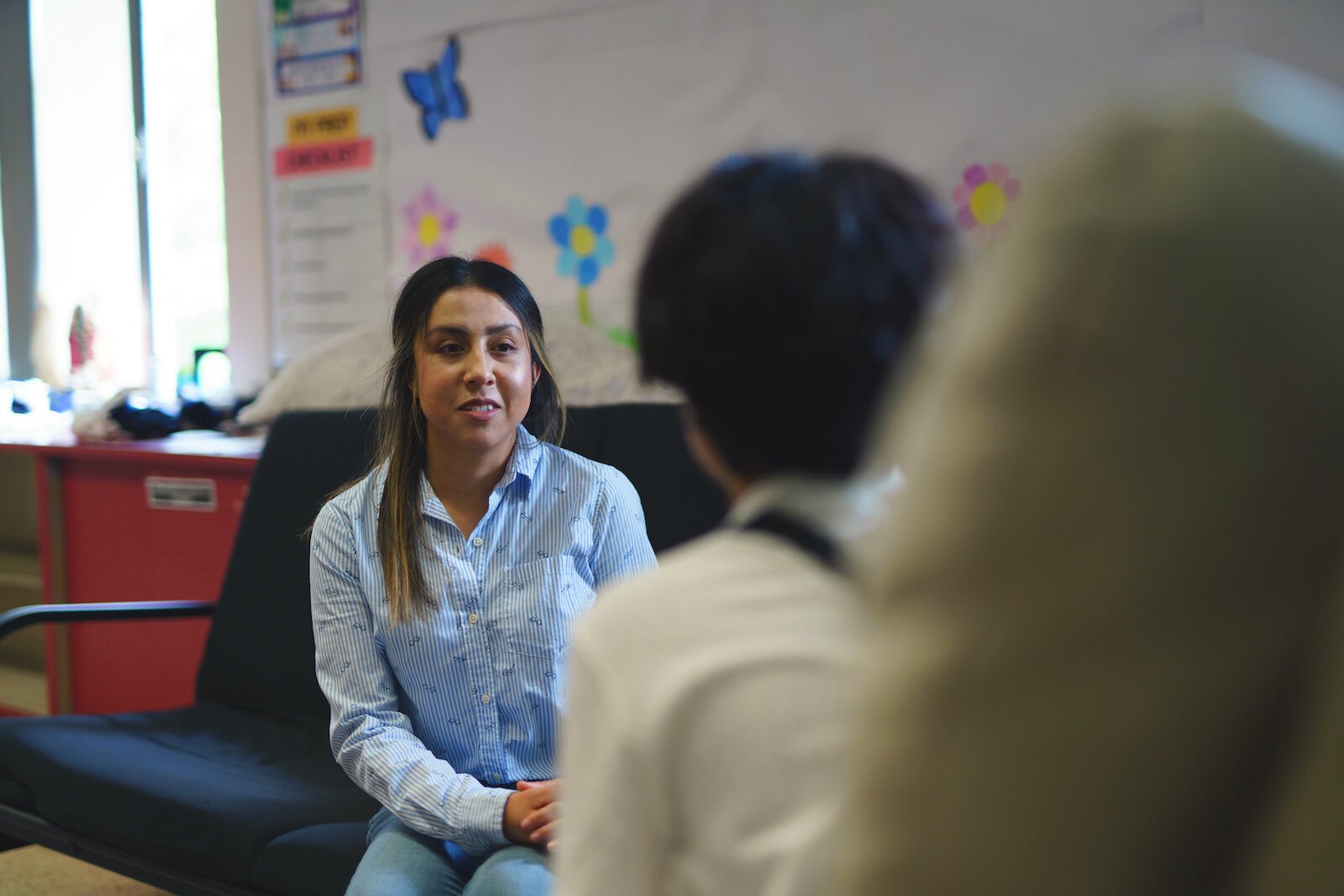
Patton says ISK has established a steering committee and a Justice, Equity, and Trauma Team that focuses on a comprehensive restructuring of the agency’s policies, practices, and initiatives to better serve the needs of greater Kalamazoo. ISK also works toward system change to bridge health equity gaps specific to underserved and marginalized populations.
“We will also continue growing our community partnerships with local organizations and expanding services to better support the needs of community members,” Patton says.
Training/Pipeline Development, Systemic Issues
Randl Dent pointed out that greater diversity in training programs for behavioral health professionals will impact how marginalized populations are served.
“With more and more research being done, we’ve realized, for example, that (something) like depression, symptoms can manifest differently across different groups,” Dent says.

“Some people may not be able to get out of bed, but in some groups, like what they’ve seen in Black children is that depression manifests as anger,” Dent says. “So if you don’t know that depression can manifest as anger, then you can’t properly treat the problem at hand. You might say ‘they’re angry, so they need anger management’ but really what they need is care for their depression.
“We need not just greater diversity in the mental health workforce,” she says. “We need to make sure that the education that future behavioral health professionals are receiving talks about what it’s like for different groups to experience these things.”
Faison is among those trying to recruit more people of color to become mental health professionals.
The daughter of migrant workers, she decided on a career in psychology after participating in a co-op after-school program in high school. Faison was the first in her family to graduate from college and sat in many of her psychology classes as the only Latina.
Now, with a master’s in counseling psychology from Western Michigan University, she’s been serving communities in and around Kalamazoo for 15 years. She did it with no role models to look up to and the financial backing of the Gates Millennium Scholars Program. The sorority she joined does career days, and she has talked to high schoolers about a future in behavioral health.
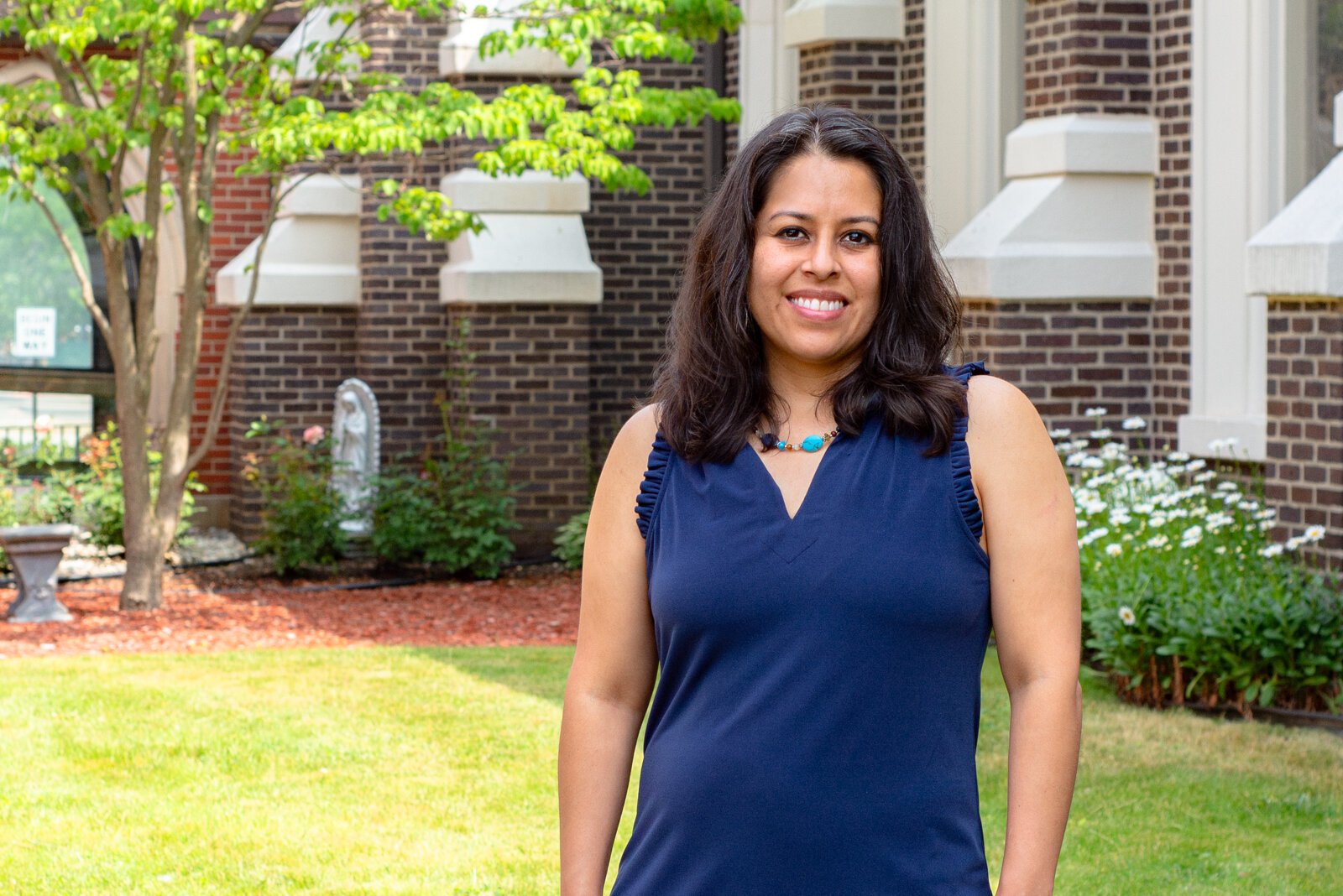
While being a community healer is a major motivating factor for her to continue this work, she’s hearing from young people whose parents also immigrated to the United States that they need a profession that pays more, so they will opt to earn higher income rather than become therapists. The median pay for a counseling psychologist in Michigan is about $83,000 per year.
“Because their parents don’t make that much, they always talk about money. They want to go into a career to make money,” Faison says. “If they make good money, they’re going to help their parents out. They want to buy them a house because our parents work so hard. You know?”
Ferguson, the Black psychologist based in Kalamazoo, sees similar barriers.
She explained that she will steer people to careers in social work and counseling with some parameters because of the amount of student debt that can be incurred. She says she obtained a doctorate to practice independently.
“That meant years and years of more schooling. When you think about how much I spent versus how much I’ve made as a psychologist, it doesn’t make sense,” Ferguson says.
She doesn’t want people to lose their hearts toward the profession or the ability to serve communities that reflect their culture, but she cautions that people should lead with their hearts and their heads to avoid overworking, burnout, and exploitation.
“It’s in our traumatic DNA, so we will take on the burdens of an entire community and won’t set those boundaries because we’re members of that community. So now we’re overworked and exploited in ways that become unpaid labor,” Ferguson says. “It’s really hard to get out of that cycle.”
Ferguson added that exposure to the right mentorship and programs, and empowerment to operationalize ancestral influences impact whether people will seek out a career or stay in the mental health profession.
“Then we kind of just go into a predominately white system and operate in the ways that they operate,” Ferguson says. “Usually we’re fighting in that system for our own well-being as well, while also trying to serve communities of color.”
Ferguson, whose student loans were forgiven through the Public Service Loan Forgiveness program, continues to provide therapy for one long-term client pro bono and currently serves as the director of Equity, Learning & Culture at the Kalamazoo Community Foundation.
“I’m a better human because I was a therapist, and then you have to look at the full ecosystem and go up all those layers to look at the actual scope of mental health care that’s not just sitting in the office with that one person,” she says. “We know more now and are making different choices, and until we can create training programs that allow you to think about all the possibilities within mental health care, people are opting out.”
Collecting Data to Optimize Deployment
Michigan has 24,939 behavioral health providers, including psychiatrists, addiction medicine specialists, psychologists, licensed clinical social workers (LCSWs), licensed professional counselors (LPCs), and licensed marriage and family therapists (LMFTs), according to the Behavioral Health Workforce Tracker. That’s about one provider for every 248 people.
A national database created at George Washington University, the Behavioral Health Workforce Tracker, shows that Kalamazoo County has 953 behavioral health providers – mostly LPCs and LCSWs. That’s about one provider for every 365 people in the county. There are not enough providers to meet the demand for care, especially for marginalized populations.
Dent says media reports and anecdotal information tells researchers that there are people waiting a long time to be seen when they seek care and there’s an increased demand for care. That’s why Dent and her team were driven to create a national database to track behavioral health providers.
“It’s really hard to say we have a workforce shortage in data when we don’t have all the data in one place,” Dent says. “If we knew who was practicing where, and we were able to track them on a continuous basis, we could further deploy behavioral health professionals on a continuous basis.”
Outside of identifying where there are gaps in providers, incentives such as student loan forgiveness for graduates who work in high-needs geographic locations and the Minority Fellowship Program by the Substance Abuse and Mental Health Service Administration (SAMHSA) for current behavioral health profession students are meant to increase the workforce.
Creating a work environment that shows the agency is committed to inclusivity is another factor to attract diverse care providers. Patton says that ISK fosters and supports staff training and development to that end.
“This includes, but is not limited to, staff trainings specific to anti-racism, antisemitism, systemic oppression, trauma-informed care, allyship, social determinants of health, health equity, and affirming care for BIPOC and LGBTQIA+ individuals,” Patton says. “ISK has collaborated with consultants and conducted organizational assessments to ensure that our locations are affirming. This further led to ISK being classified as a Certified Safe Space by OutFront Kalamazoo.”
Employers also need to create an environment that encourages self-care — a practice not generally taught during clinician training, Ferguson says.
“I can’t say it enough that clinical work is taxing. It is hard. And to hold pain and suffering of others is hard, and it’s so worthwhile. I didn’t burn out in 20 years because I was able to engage in a lot of self-care and community care and heal while I was doing that work,” Ferguson says. “But they don’t teach us how to do that either. They teach us about good boundaries with clients, but you have to really increase the level of care you need when you don’t even know you’re holding this.”
Self-care and sticking with it
In Maria Faison’s role as a counseling psychologist, she is often tasked with providing more than talk therapy for clients. She is stationed at several Kalamazoo schools four days a week during the school year.
With one client, Faison found herself attending multiple meetings for school suspensions and behavior concerns for more than a year. The client eventually began receiving psychiatric services and Faison attended the initial appointment before the client was taken off of her caseload.
Faison says a comfortable caseload for her is 24 to 25 clients, but she has had as many as 35 clients. Most talk therapy sessions are 45 to 50 minutes long, giving the clinician about 10 minutes to write progress notes. Assessments take longer, and reports are longer to write.
“I need time to type assessments and progress notes, plus phone calls,” Faison says. “I tend to do more because I coordinate with doctors. Being Spanish-speaking, you still need to translate or help them connect to the resources.”
El Concilio does have a part-time therapist contracted, but her client load is limited because she only speaks Spanish. Faison says many people come to El Concilio with parents who speak Spanish and youth who speak English, so she ends up being a better fit as a therapist.
Faison says when the workload feels heavy, she puts herself “back into perspective” that she’s trying to help and she’s doing her best. Self-care for her includes cooking herself a nice meal, learning something new, and listening to music.
“Religiously, I’m very close to God and I feel like I’m doing His work and I’m trying not to do it selfishly, but for a good reason, and it’s coming from my heart. I really just enjoy helping people,” Faison says. “I also like the end result. I like seeing people feeling accomplished or like they’ve succeeded in their treatment goals. That’s the best.”
Nancy Rubio feels fortunate to have services for her son, Diego, through El Concilio with Faison.
“What my son likes the most is that he can talk to her. He can open up,” Rubio says. “That’s what a therapist should give you, and she gives that trust to my son.”
*Interview in Spanish, Jesús Grillo, Nueva Opinion

